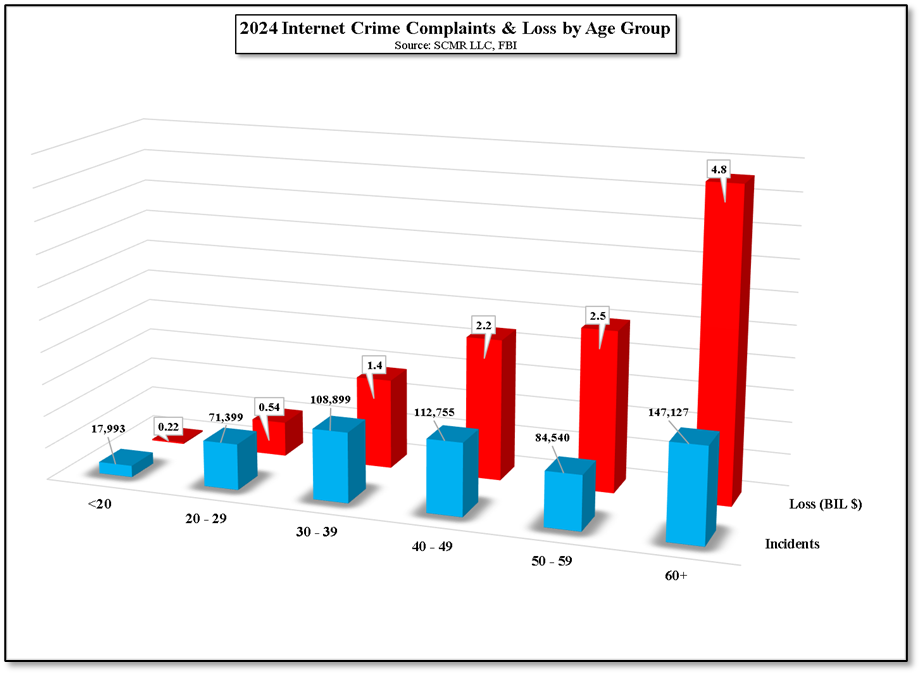Confidence Game
While there were more complaints filed by those over 60 years old in 2024, and ~$4.5 billion in losses for that age group, the 40 – 50 age group racked up $2.2 billion in losses and the 30- 40 age group another $1.4 billion. The 20 – 30 age group was the most careful, losing only $540 million ($7,563/incident report), while the under 20’s lost onl $22 million but averaged over $12,000/ incident report.
The IC3 also receives complaints from foreign countries but more relevant is the data on where fraudulent wire transactions were headed, surprisingly China was last on the list.
- Hong Kong 27.2%
- Vietnam 23.5%
- Mexico 13.4%
- Philippines 12.7%
- India 11.8%
- China 11.4%
The data gets even more granular, with state data showing that California individuals lost over $833 million, followed by Texas ($490m), Florida ($388m) and New York ($258m) and DC ($251m) as the top 5. As noted earlier, crypto has unusual focus when it comes to internet crime and it is on the rise, with 2024 showing a 29% increase in crypto complaints and a 47% increase in crypto losses in 2024. US Crypto scam losses amounted to $5.8 billion, with the 40 – 50 and the over 60 age groups hit the hardest, although the ability to access or send crypto via ATMs is beginning to give scammers an easier and less traceable way of getting payment for a number of scheme types.
The IC3 and the FBI generally receive thousands of complaints each day and while the impact on individuals, especially those most vulnerable is considerable, the overall impact of being able to integrate complaint data through the IC3, gives the FBI the ability to connect similar or identical complaints and find patterns that can be investigated, and if necessary, freeze funds for domestic and international entities that are consistent violators. While scammers continue to evolve tactics to avoid broad detection, at least there is a part of the US government that is working solely for consumers without the influence of lobbyists and special interest groups as scammers don’t typically hire lobbyists…



 RSS Feed
RSS Feed